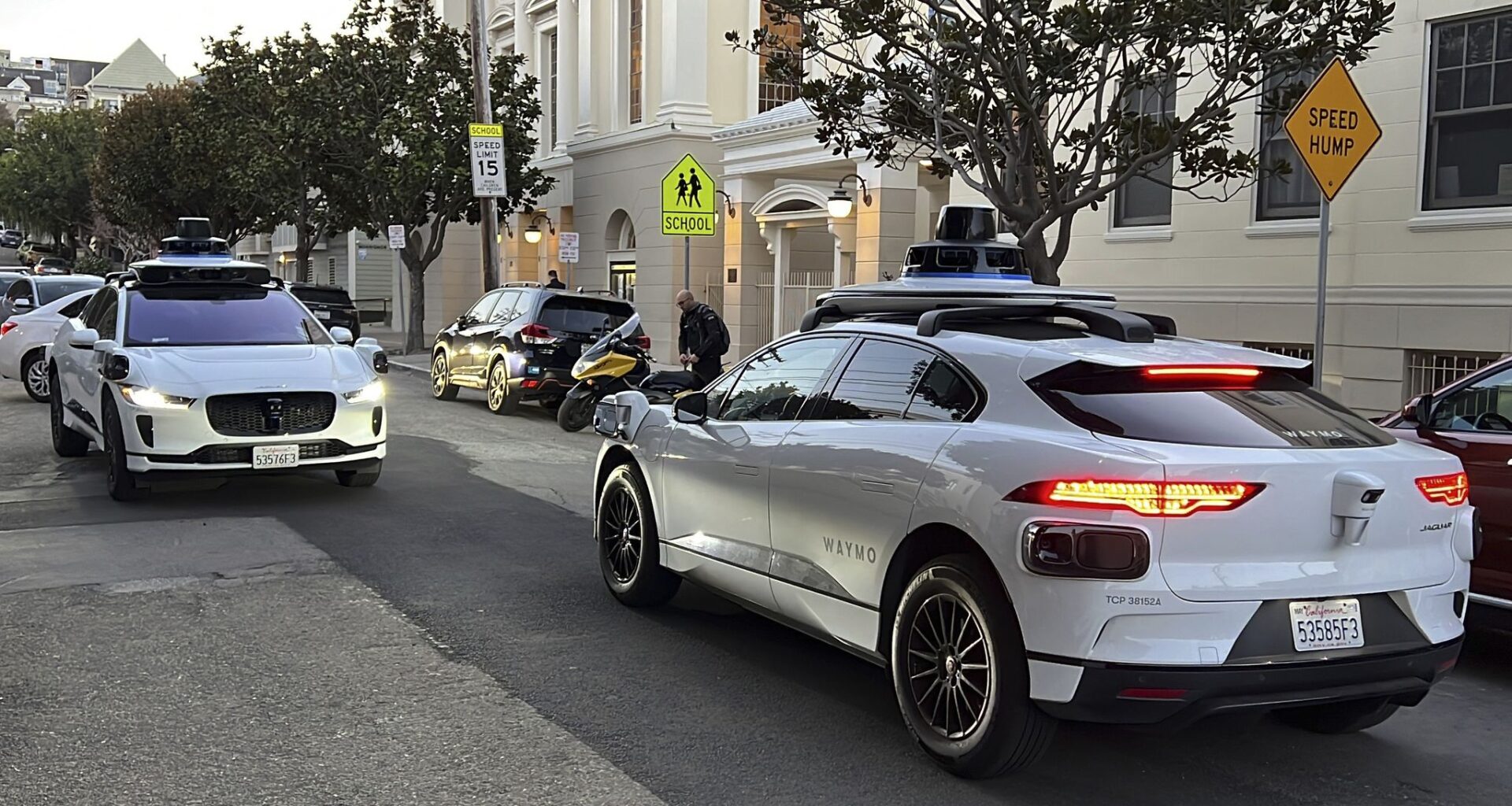Fifty driverless cars converging on a single dead-end street sounds like a software glitch. In reality, it was a coordinated prank.
Over the summer, Riley Walz — a 23-year-old software engineer and self-described “tech prankster” — enlisted dozens of participants to order Waymo rides at the same moment on San Francisco’s longest dead-end street.
“The plan? At dusk, 50 people went to San Francisco’s longest dead-end street and all ordered a Waymo at the same time,” Walz revealed Sunday on X. “The world’s first: WAYMO DDOS.”
The term, short for “distributed denial of service,” refers to a type of cyberattack that overwhelms a system with traffic to disrupt its normal operation — in this case, a tongue-in-cheek nod to how dozens of simultaneous requests briefly jammed Waymo’s network.
No one boarded the cars, Walz said. After about 10 minutes, the autonomous vehicles departed and charged each requester a $5 no-show fee.
“Waymo handled this well,” Walz said, noting that the company temporarily disabled all pickups and drop-offs within a two-block radius until the next morning.
Online, the stunt drew a mix of fascination and alarm.
“Nice job I guess? What’d you get out of it?” one user asked. Another warned, “This would be a felony under the current computer access and abuse laws.”
Some saw darker implications.
“Someone will figure out how to use this to jam up traffic in targeted urban centers on election day,” another user wrote. Others viewed it as a useful stress test. “They were not vandalizing the vehicles and they paid the no show fees,” one commenter wrote. “Waymo should be doing this kind of thing itself.”
The July prank fits neatly into Walz’s pattern of projects that blur the line between satire and systems analysis.
A North Beach resident, Walz previously made headlines for creating a viral map that tracked San Francisco’s parking officers in real time before city officials shut it down. He also transformed a fake Google Maps listing into a real one-night steakhouse, and built “Bop Spotter,” an app that uses music app Shazam to log music playing on city streets 24/7.
Walz, who co-founded a data company called Numerous.ai, has said his pranks are driven by curiosity, not malice.
“You have to follow through on your ideas because if you don’t, you might stop having them,” he told the New York Times earlier this month.
Waymo did not immediately comment on the incident.

